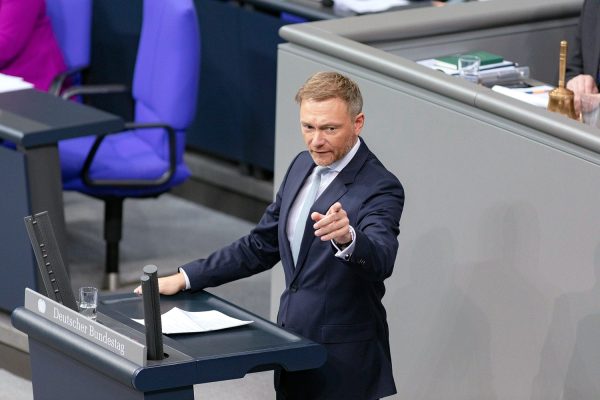
There is little doubt Angela Merkel will win reelection in Germany on Sunday. Her Christian Democrats are projected to win up to 40 percent support against 25 percent for the second party, the Social Democrats.
The two could continue to share power in a “grand coalition”, but we’re hoping the liberal Free Democrats will win enough seats to help form a center-right government instead.
Polls suggest that the two parties might just fall short of a majority. Conservative and liberal voters who want to keep the left out of power ought to give the Free Democrats their support.
Not another fudge, please
The outgoing grand coalition has governed Germany competently, but too many left-right pacts are bad for democracy. It gives voters the impression that it doesn’t really matter who they vote for and the parties put off too many difficult decisions.
Take immigration. Most Germans feel the country has taken in enough refugees, but economists argue it needs high-skilled migrants to make up for a shrinking working-age population.
Merkel’s right simply wants restrictions. The Social Democrats and other left-wing parties argue for openhandedness. The chancellor, ever dexterous, has found a middle ground: letting in refugees, but reinstating border controls and speeding up deportations. It’s a fudge that keeps the peace, but it’s not a long-term solution.
Her own party has proposed to give out permits on the basis of job offers, but that wouldn’t make much difference. Employers are reluctant to hire foreign workers if it involves too much paperwork.
The Free Democrats have a better idea: a points-based immigration system that rewards language and technical skills. That would attract talent while providing a framework for reducing low-skilled immigration.
Complementary
The Free Democrats complement the Christian Democrats in other ways:
- Both parties want to use a budget surplus to finance tax relief for the middle class. The left would spend the money and raise taxes.
- Both support free trade. The Social Democrats could barely get their base behind a trade deal with Canada.
- The outgoing coalition made it more difficult to hire temp workers. The Free Democrats want to get rid of those restrictions.
- The Free Democrats propose to update the pension and welfare system to the realities of the twenty-first century. Workers switch between full-time and part-time jobs; between salaried and self-employed; between working in Germany and elsewhere in Europe. They shouldn’t be discouraged from doing so by red tape.
- Merkel allowed a free vote on marriage equality, but gay couples in Germany still don’t have equal adoption rights. The Free Democrats propose to rectify that.
- The Christian Democrats want to meet NATO’s 2-percent defense spending target. The Free Democrats argue for 3 percent. Somewhere in between would signal that Germany is serious about taking on a security role. (Left-wing parties would keep military spending below 2 percent.)
- Since Emmanuel Macron’s election in France, Merkel has seemed open to a grand bargain in Europe that would give Germany closer economic integration in return for flexibility on debt and deficit rules for the south. The Free Democrats could only agree to that if the balance is clearly in favor of the former — and that, not more debt, is the path to higher growth.
The Christian Democrats, the party of the quiet middle class, sometimes lean toward complacency. The Free Democrats, the party of entrepreneurs, keep them sharp.
